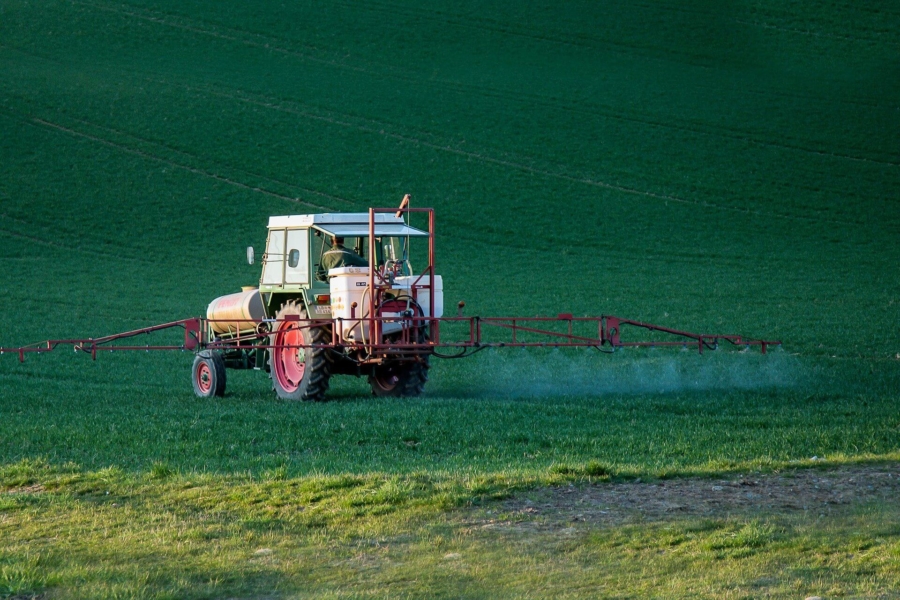No products in the cart.

GMOs, or genetically modified organisms, are plants that have had their genetic sequences altered in specific ways. Common GMO crops today include corn, soy, and cotton. Since the time that this technology began, many people have had concerns about the negative effects of GMOs on human health and the risks of GMO crops. Join us as we explore genetic engineering, its effects on you, and why Green Gorilla™ is your number one source for GMO-free CBD.
How Genetic Engineering Works
Since the dawn of agriculture, growers have spent years developing cultivars of plants that are stronger, more vigorous, better tasting, and more resistant to disease. The initial stage of selective breeding that creates food crops from wild plants is generally referred to as domestication. Further improvements are referred to as selective breeding.
When promoting the idea of GMOs and minimizing any negative effects of GMOs on human health, companies will often refer to the long history of human intervention in plants. However, there are a few very important differences between selective breeding and genetically engineered food:
Selective Breeding
- Introduces new traits by cross-breeding related plants
- Emphasizes a gene or trait that is already present in one or both plants
- Accelerates a process that in many cases could happen naturally
Genetic Engineering or Genetic Modification
- Inserts specific genes into plants from an unrelated species or substance
- Introduces a gene or trait that is not naturally present in the plant
- Could never happen naturally
To put the difference in human terms, selective breeding would be like someone strong marrying someone beautiful and hoping to produce children that are both strong and beautiful. In contrast, genetic engineering would be like splicing a child’s DNA with a “strong” gene from a lion and a “beautiful” gene from a butterfly.
Why Agriculturalists Want Genetic Engineering
From the perspective of many industry leaders, genetic engineering offers a solution to the challenges facing agriculture today, such as climate change, pests, and drought. Most are not particularly concerned about the potential negative effects of GMOs on human health. If corn can be imbued with the insect resistance of Bacillus thuringiensis (a bacteria) or tobacco with proteins that increase photosynthesis, farmers could produce abundant crops on smaller and smaller parcels of land. The hope is that the shrinking pool of remaining farmers would be able to grow “super crops” that feed the world and would be resistant to threats like pests and climate change.
Risks of GMO Crops
Aside from the potential negative effects of GMOs on human health, genetic engineering has its risks. These risks span everything from health to sustainability—factors that are too important to be ignored.
Increased Use of Pesticides

Genetically modified crops were introduced in 1996, and between the years 1996 and 2011, the use of pesticides such as glyphosate increased 11%, some 527 million pounds. The connection between these two factors is clear: scientists created GMO crops that were resistant to herbicides. That meant that farmers could apply as much herbicide as they wished without harming the structure of the plant.
The environmental consequences, however, can easily be seen today. Pesticides washed into the water and the soil, creating dead zones in waterways—and that’s without even considering the effects on insects and pollinators. These GMOs also had adverse effects on human health: more pesticides on crops mean more pesticides in food and a corresponding increased risk of chronic illness.
Reduced Biodiversity
The second risk of GMOs is an accelerated loss of biodiversity. Instead of the 146 varieties of carrots that we have today, we would end up with one “super” carrot variety that is extremely large and resistant to everything. The downside is that more size often equals less flavor, and in many cases, a lower density of nutrients.
Diversity is also a key to resilience—if one variety fails or falls victim to a new disease, a different variety will usually prove more resistant and ensure the overall food supply is safe. In fact, research has shown that traditionally bred crop varieties can often outperform GMOs while providing location-specific resilience… not to mention more variety on your plate!
Negative Effects of GMOs on Human Health
The negative effects of GMOs on human health per se are very hard to pin down. Early research indicated that GMOs may affect organs, reproduction, and immunity while acknowledging that long-term studies would be needed to confirm the effects of GMOs in humans. More recent articles covering the risks of GMO crops reassure the reader that they are safe, pose no greater risks than other types of genetic modification, and don’t affect human DNA any differently than regular food.
What we do know is that GMO crops promote an industrial model of agriculture that relies heavily on chemicals and does little to build up the soil. In an age where soil depletion is threatening us all, this is the wrong path to take—especially when the challenges facing the global food system need to be met locally, with soil-building, ecosystem-minded solutions.
Popular Products with GMOs
If you’re concerned about the risks of GMO crops or the negative effects of GMOs on human health, here are some common products to look out for:
- Soy. In the US, around 94% of soy is genetically modified and similar statistics apply around the world. If you consume soy products like tofu or soy milk, choose brands that use organic, non-GMO soy and avoid cheap soybean oils and sauces.
- Cotton. Cotton is one of the most commonly used textiles around the world, accounting for over 39% of the textile market share in 2020. In the United States, around 94% of cotton crops are GMO. Worldwide, it’s around 90%. If you would like to avoid the negative effects of GMOs on human health and the environment, you can purchase certified organic cotton clothes. Brands certified by an organization such as GOTS (Global Organic Textile Standard) are a great place to start.
- Corn. Products made from GMO corn (92% of US corn production in 2018) include animal feed, high-fructose corn syrup, ethanol used for fuel, and ethanol used for CBD extraction. When shopping for hemp-derived CBD products, choose brands that use non-GMO ethanol and/or supercritical CO2 for extraction. You can also switch to pastured organic meat that is certified GMO-free.
The Takeaway
You have a right to know and choose what goes into the products you buy. By purchasing GMO-free CBD products at Green Gorilla™, you can avoid the potential negative effects of GMOs on human health and the risks of GMO crops on biodiversity.
It’s your body, it’s your world, and it’s your CBD. Join us in our mission to build a healthier, cleaner, and fairer world by shopping our GMO-free CBD oil, gummies, skincare, pet products, and more!

